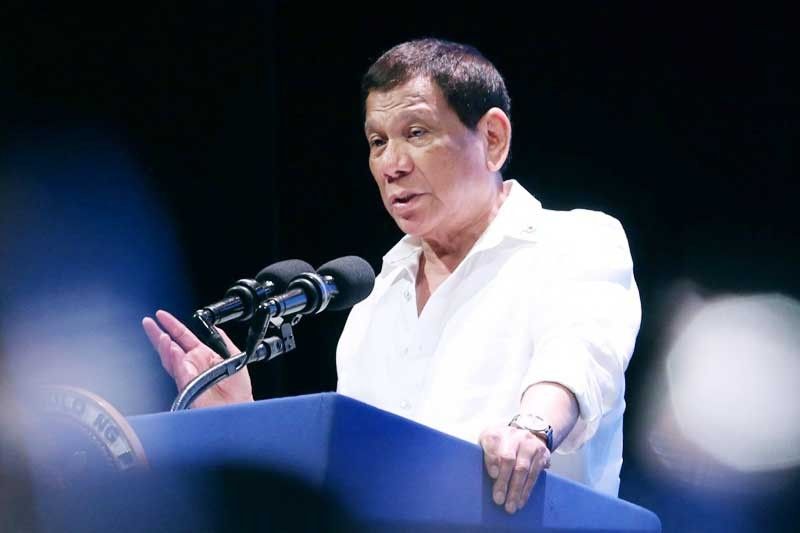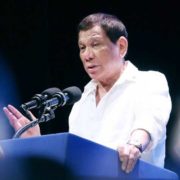
Malacañang on Tuesday, January 1, said Catholics should not be offended by President Duterte’s remarks on their beliefs, instead they should regard his words as a means to strengthen their faith.
Duterte, who has been at odds with Catholic bishops over the war he waged against drugs, questioned the doctrine of the Holy Trinity last week.
According to him, there is only one God and it is silly to divide God into three. One of the fundamental beliefs of Catholicism is the Holy Trinity, which states that there is one God in three divine persons — the Father, the Son, and the Holy Spirit.
Duterte furthermore rejected the veneration of saints. He told the public to just pray to God.
Malacañang defended Duterte’s latest remark, saying this is his way of “shaking long held religious tenets and beliefs” that make people “cling to religion as an opium” instead of molding them into righteous individuals.
“In so doing, the President puts to a test the validity of the religious rituals bordering on fanaticism as against the practice of genuine spirituality as taught by the different personifications of one God,” said presidential spokesperson Salvador Panelo in a statement.
“Rather than the Church and its believers being offended by such unorthodox narratives, they should welcome it as a process to strengthen further their faith or enlighten those who seek the truth of what they have embraced,” he added.
Duterte, in Panelo’s words, was “unmindful of any consequential erosion of his public support” when he made the unconventional discourse.
Catholicism was brought by the Spaniards to the Philippines in 1521. More than 80 percent of Filipinos are predominantly Catholic to this day.
Panelo claimed Duterte was merely seeking to “initiate an intellectual discussion for the faithfuls’ enlightenment and spiritual awakening” which could lead them to the upright path.
The presidential spokesman argued that such statements are vital for the “moral regeneration of a nation so abundant with religiosity but wanting in spirituality.”
Panelo also insisted that Duterte was trying to be creative by using means that may be “unnerving to the conservatives unused to his ways of governance” but effective in getting his message across to the majority.
“The President at the same time sets the limits of the freedom of expression to a notch higher than its common use,” he said.





